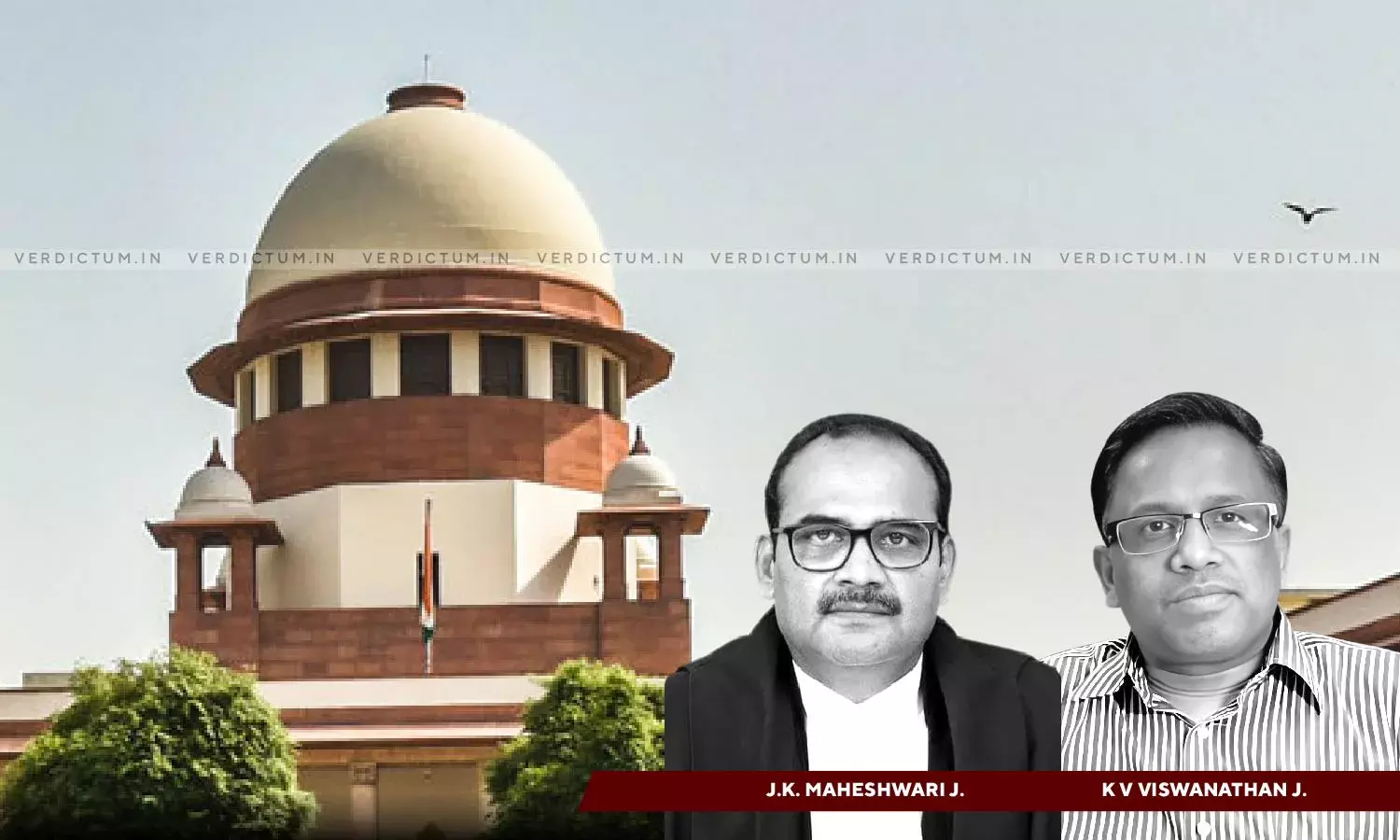Theft Case: Where There’s Some Contributory Factor, Proportionate Deduction From Assured Amount Would Be All That Insurance Co. Can Deduct- SC Reiterates
The Supreme Court in a theft case has allowed the appeal against the judgment of the National Consumer Disputes Redressal Commission (NCDRC) reiterating that where there is some contributory factor, a proportionate deduction from the assured amount would be all that the Insurance Company can deduct.
The two-Judge Bench of Justice J.K. Maheshwari and Justice K.V. Viswanathan held, “Nitin Khandelwal (supra) and Amalendu Sahoo (supra) lay down the correct formula that where there is some contributory factor, a proportionate deduction from the assured amount would be all that the Insurance Company can aspire to deduct. We are inclined to accept the plea of the appellant that in the case at hand, on the facts governing the scenario, Clause (iii) of the table set out in para 14 of Amalendu Sahoo (supra) is attracted and the District Forum and the State Commission were justified in awarding the entire 75% of the admissible claim.”
The Bench said that the case was an eminently fit case, where the claim at 75% ought to have been awarded on a non-standard basis.
Advocate Kunika appeared on behalf of the appellant while Advocate J.P. Sheokand appeared on behalf of the respondent.
Facts of the Case
The National Commission/ NCDRC in this matter had reversed the concurrent judgments of the District Consumer Disputes Redressal Forum (District Forum) and the State Consumer Disputes Redressal Commission (State Commission). The Fora below, while allowing the original complaint had directed the New India Assurance Company Limited i.e., the respondent herein to indemnify the claimant on a non-standard basis to the extent of 75% of the sum assured, which was Rs. 8,40,000/-.
The appellant was the owner of a truck having a valid insurance policy and one day his driver left the key of the said vehicle in the keyhole when he got out of the vehicle to look around for one address to unload the stone dust at a farm. When he came back, he saw two persons sitting on the driver’s seat of the vehicle and according to him, they stole and took away the same.
The Supreme Court after hearing the contentions of the counsel for both parties observed, “… in our view, the complaint cannot be thrown out on the threshold of Order XXIII Rule (1)(4) CPC and in the peculiar facts, it requires consideration on merits. … In the facts of the present case, the main question that falls for consideration is: Whether the delay of 6 days in intimating the Insurance Company about the theft comes within the purview of breach of Condition No. 1 and also whether on facts there was breach of condition No. 5 of the insurance policy to justify the rejection of the claim in toto?”
The Court noted that it is well settled in a long line of judgments of the Apex Court that any violation of the condition should be in the nature of a fundamental breach so as to deny the claimant any amount.
“It is an admitted position in the Repudiation Letter and the Survey Report that the theft did happen. What is alleged is that the Claimant was negligent in leaving the vehicle unattended with the key in the ignition”, said the Court.
The Court added that even if there was some carelessness, it was not a fundamental breach of Condition No.5 warranting total repudiation which was rightly so ordered by the District Forum and affirmed by the State Commission.
“Further since there was a fundamental breach of Condition No.1, there was no occasion to raise points for settlement of claim on non-standard basis. There is no whisper about the breach of Condition No.5 being not a fundamental breach. We find the present case, on facts, completely different as there is no breach of Condition No.1 because the intimation to the police was immediate”, held the Court.
Accordingly, the Court allowed the appeal, set aside the judgment of NCDRC, and restored the decisions of the District Forum and State Commission.
Cause Title- Ashok Kumar v. New India Assurance Co. Ltd. (Neutral Citation: 2023 INSC 659)




